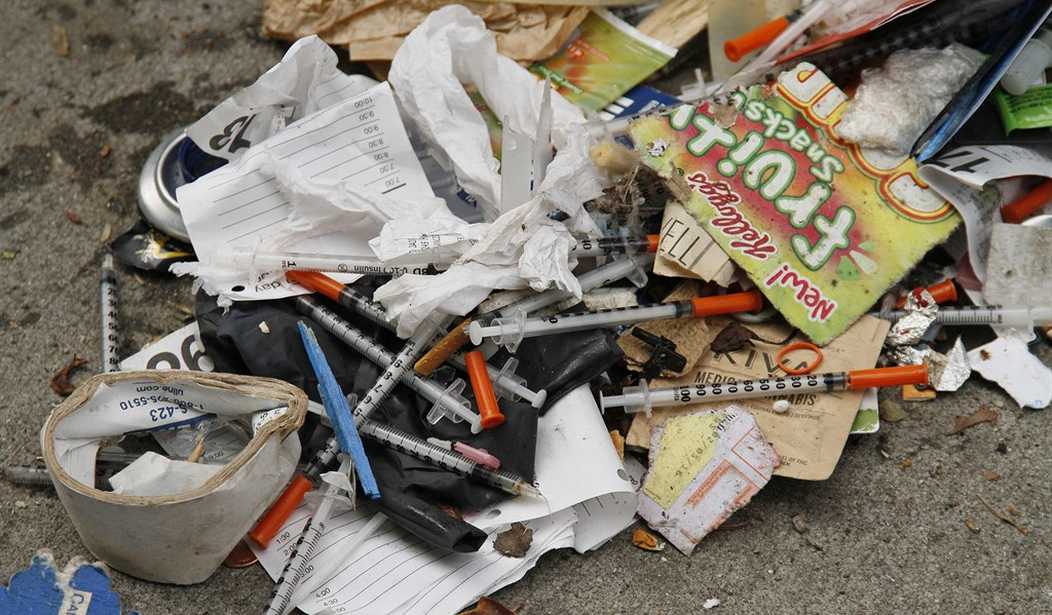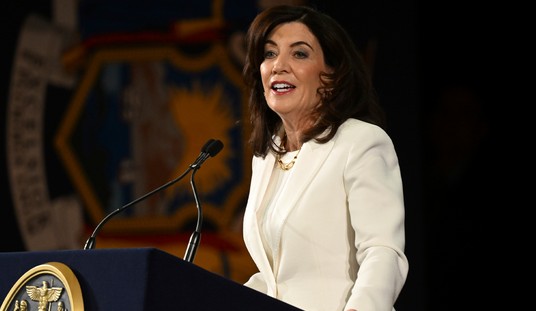It’s hard to believe this is even being considered in San Francisco, much less that it has a chance of passing. Back in September Mayor London Breed proposed drug testing the city’s welfare recipients.
“No more handouts without accountability,” Breed said at a City Hall news conference. “People are not accepting help. Now, it’s time to make sure that we are cutting off resources that continue to allow this behavior.”
The proposal from the Democratic mayor of this ultra-liberal city reflects the depth of frustration with a fentanyl crisis that has led to record overdoses, turned parts of downtown into open-air drug markets and is correlated with an increase in car break-ins and other property crime.
Here’s how it would work if implemented:
Under the new proposal, as a condition of eligibility to receive CAAP, people with suspected substance use disorder would be required to participate in substance abuse screenings or treatment programs funded by SFHSA. These treatment programs would include a range of interventions from residential treatment, medical detox, medically-assisted treatment, outpatient options, and abstinence- based treatment.
Anyone who refuses, or does not successfully engage in treatment, would be cut off from CAAP cash assistance.
The San Francisco Human Services Agency oversees the CAAP program. Currently, about 5,200 people are receiving cash payments between $100-$700 monthly.
The proposal was immediately criticized by progressives, including a possible challenger for mayor who is currently chairman of the Board of Supervisors.
Board President Aaron Peskin, who some believe may run against Breed, said the mayor was “grasping for a political lifeline” and predicted the policy would fail.
“These are serious times in San Francisco — and we need serious ideas,” he said in a statement.
“Mayor Breed does not have the ability or the will to organize our many public safety resources … If she can’t find the way to prevent several hundred brazen criminals from selling deadly drugs, how does she think she will find the resources to drug test thousands of welfare recipients?
Mayor Breed also got pushback from the users themselves who seemed to be upset the taxpayers were judging them.
Struggling with an opioid addiction and fleeing successive wildfire evacuations in her native Lake County, Shelly Brown arrived in San Francisco two years ago to find a city awash in aid. She began receiving monthly welfare payments in addition to food and money from local nonprofit organizations…
“I want to cry just thinking about it,” said Brown, 40, adding that it felt like a personal affront because she had received government assistance since childhood…
At Civic Center, Amy Brown pulled a cart filled with garbage bags and a sack of children’s toys she was selling. She had recently moved into permanent housing in the Tenderloin after completing treatment at a rehabilitation center for alcohol and drug use following a relapse.
“Ideally, is it better to be drug free? Yes, of course,” said Brown, 41. “But at the end of the day, it’s our choice to use if we want to use.”
It absolutely is her choice to use drugs but it’s also the city’s choice and the taxpayer’s choice whether they want to pay for those drugs. And there’s no doubt that is what is happening in many cases. Nearly two years ago I posted this video shot in San Francisco by Michael Shellenberger. Listen to James who explains that he came to San Francisco because all it takes is a phone call to get on city welfare and then he’s free to do drugs on the taxpayers dime.
People say lack of housing forces local residents into the streets, but James says he came from Texas to San Francisco for the drugs, the non-enforcement of anti-camping laws, and the $820/month in welfare & food stamps. James says he sold fentanyl, 2 weeks ago, to a 15-year-old. pic.twitter.com/5qMr6tmlWs
— Michael Shellenberger (@shellenberger) February 9, 2022
It’s not really a surprise that a proposal like this got pushback in San Francisco. What is surprising is that the situation is so dire that people who might previously have been critics are open to trying anything now.
Despite a series of proposals by Mayor London Breed that have historically harmed communities of color, many Black San Francisco community leaders say they remain supportive of the mayor and her strategy. They said San Francisco is facing a crisis that requires a different hand, even one that would increase policing and punitive measures…
Del Seymour, a self-described former addict who runs Code Tenderloin and is a community leader there, has not always believed in a tough-on-crime approach, but said he is “willing to try anything.”…
Although he has spoken against the war on drugs as ineffectual in the past, Seymour supports Breed’s latest proposal to screen welfare recipients for drug use.
“I wouldn’t have agreed to this a year ago,” he said of the drug-screening ballot measure. “I’m just tired of seeing the misery. I’m tired of seeing the irresponsibility.”
The proposal will be on the March ballot. So does this actually have a chance of passing in one of America’s bluest cities? A recent suggests it has strong support from likely voters.
According to a poll conducted last month, 66% of likely March voters support the measure—the highest of any ballot measure polled.
“Voters are very concerned right now about crime and safety issues, the same with concern we’re seeing for open-air drug use and concerns about fentanyl addiction,” said Ruth Bernstein of EMC Research, which polled 500 likely voters in mid-November on their views of three measures slated for the March 2024 ballot.
But it’s not a done deal yet. The board which runs the SF Democratic Party is urging people to vote no on the measure. Allegedly they are concerned about taking money from needy people but in this case the only people who might lose money are addicts who are spending the money on drugs. You start to get the impression that progressives in San Francisco are a little bit worried some of these proposals might pass and, even worse, some of them might work.







Join the conversation as a VIP Member